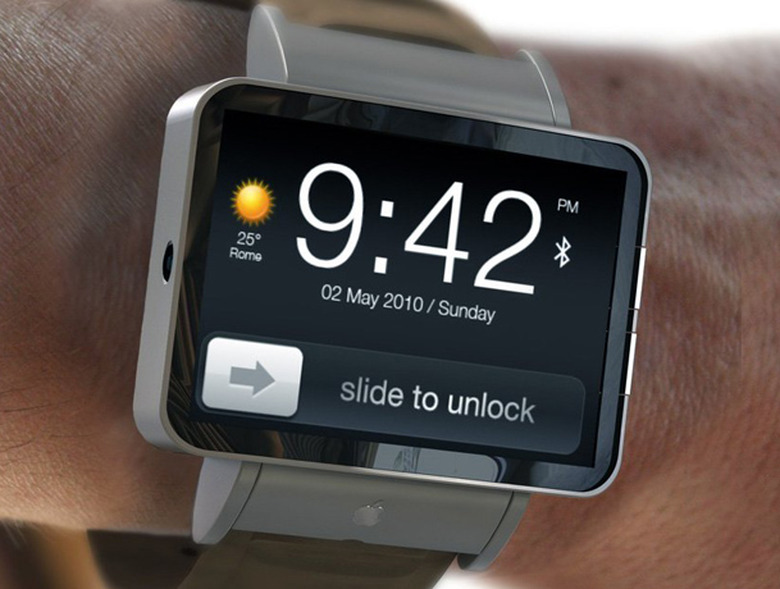Apple iWatch: People Are Getting Excited For All The Wrong Reasons
Technology news sites are set aflutter any time they catch a whiff of a potential new product from Apple (AAPL), but the latest rumors might not be exciting for the reasons you think. Reports this week from The New York Times, The Wall Street Journal and Bloomberg have renewed chatter surrounding a possible "iWatch" in development at Apple, and some industry watchers think it might be just what the company needs to remind investors that it can still innovate. As Sector & Sovereign Research analyst Paul Sagawa notes, however, even a very successful iWatch launch would barely be a blip on Apple's revenue radar.
In a note published on Sector & Sovereign Research's website, Sagawa discusses news linking both Apple and Google (GOOG) to upcoming wearable device launches. There is some consumer interest in the category right now thanks to the press' recent coverage of the Pebble smartwatch, but the analyst believes investors shouldn't get too excited about Apple's possible entry into the market.
"Let's take a step back. If Apple sold one 'iWatch' for every ten iPhones sold in 2012 at a 33% premium to the Pebble E Paper, its revenues would have been less than 2% higher. Nice – particularly if the business could ramp quickly with better than average margins – but hardly a big thing for Apple and probably a stretch estimate at that," Sagawa wrote.
He continued, "Wristwatches are in cultural decline, victims to the very smartphones that smartwatches aim to augment. Given that global unit sales of Bluetooth headsets, another convenient extension of a pocket bound smartphone, have never topped 50 million a year despite prices plummeting well below $100 and an addressable market of Bluetooth equipped phones topping 1 billion users, the penetration of a pricey smartwatch accessory could be tepid."
Sagawa believes that the most likely explanation for Apple and Google's newfound interest in smartwatches and wearable devices is simply experimentation.
"Building an attractive smartwatch will take innovations to make the electronics small enough, power efficient enough and flexible enough to fit comfortably on a wrist, run familiar apps and relay information from a smartphone for at least a full day," the analyst wrote. "In this context, a connected smartwatch need not be a multi-billion-dollar business to be valuable."
Following this line of thinking, Apple's iWatch is a long-term play. The technology is interesting not because it will save users the hassle of pulling a smartphone out of their pockets to view notifications, Sagawa argues, but because they will push "sensors to feed new data to new applications" out into the market.
Examples of use cases include "vital sign monitors could provide an early insight into potential health care red flags, climate control systems could be informed by personal thermostats, and ambient sound sensors could adjust the volume of home electronics automatically."
The analyst notes that it will still be several years before the popularity of devices like the iWatch reaches a scale that would matter to companies as big as Apple and Google.[bgr-post-bug]
